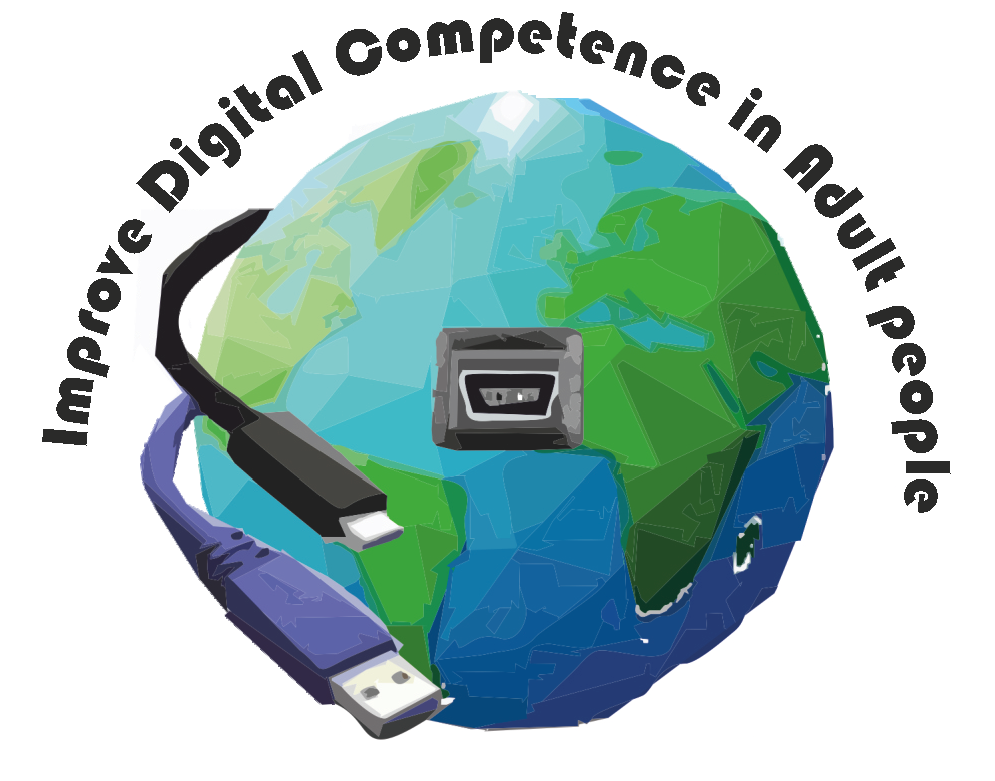
The Europe 2020 strategy recognised the importance of improving and extending the supply of high quality learning opportunities tailored to the needs of individual low-skilled or low-qualified adults so that they enhance their digital competences, as a consequence of we live in a technological world, there are many people that don´t understand how use these technologies.
Adult people with low level of education or low-qualified are the main group of people that don´t develop their basic digital skills, due to its fast development and implementation of the technology in our lives, and the little knowledge that they can achieve usually is incomplete or deficient.
We can observe this in Digital Economy and Society Index (DESI), which is a composite index that summarises relevant indicators on Europe’s digital performance and tracks the evolution of EU member states in digital competitiveness, where an item is the level of basic digital skills in adult people, and DESI shows that in many countries, this level is low.
In the way of solving this problem, throughout of a Recommendation of the European Parliament and of the Council of 18 December 2006 on key competences for lifelong learning, Europe establishes the Key Competences for Lifelong Learning, due to the fact that lifelong learning has become a necessity for all citizens. We need to develop our skills and competencies throughout our lives, not only for our personal fulfilment and our ability to actively engage with the society in which we live, but for our ability to be successful in a constantly changing world of work.
In the Key Competences we find the Digital Competence, which involves the confidence and the critical use of Information Society Technology (IST) for work, leisure and communication. It is underpinned by basic skills in information and communication technologies (ICT): the use of computers to retrieve, assess, store, produce, present and exchange information, and to communicate and participate in collaborative networks via the Internet.
Skills needed include the ability to search, collect and process information and use it in a critical and systematic way, assessing the relevance and distinguishing the real from the virtual while recognizing the links. Individuals should have the skills to use tools to produce, present and understand complex information and the ability to access, search and use Internet-based services. Individuals should also be able use IST to support critical thinking, creativity, and innovation.
In addition, the Key Competences are connected, thus we can develop other key competences at the same time we develop the Digital Competence, mainly the communication in the mother tongue, which we can improve the abilities to distinguish and use different types of texts, to search for, collect and process information; and the Mathematical competence and basic competences in science and technology, which include the ability to use and handle technological tools, apply basic mathematical principles, critical appreciation and curiosity, and respect for safety and sustainability.
The project plans to identify and evaluate the basic skills of Digital Competences and Mathematical competence and basic competences in science and technology and communication in the mother tongue in relation to Digital Competence, in adult people with low level of education or low-qualified. Later, we will develop training pills about basic digital skills to identify previously. Finally, we will create an e-repository with materials and resources to improve the digital skills. In conclusion, the overall objective of this project is that the person will be able to use technological resources in order to solve the real problems in an efficient way, as well as to evaluate and select new sources of information, with a critical attitude, respect for the truth and safety. For this purpose, we have defined four specific objectives:
• Evaluate digital skills in adult people with low level of education, unemployed, employed, immigrants, etc.
• Develop training pills about the basic skills of the Digital Competence and the Mathematical competence and basic competences in science and technology and communication in the mother tongue in relation to Digital Competence.
• Provide tools and resources to adult people with the aim to help them to improve their knowledge.
• To create an e-repository with materials, tools and resources to develop digital skills.
The transnational nature IDCAP project takes on real meaning through the variety of work-linked training contexts in Europe, the different perception of soft transversal skills from a country to another (cultural habits) and the disparity among European countries.


